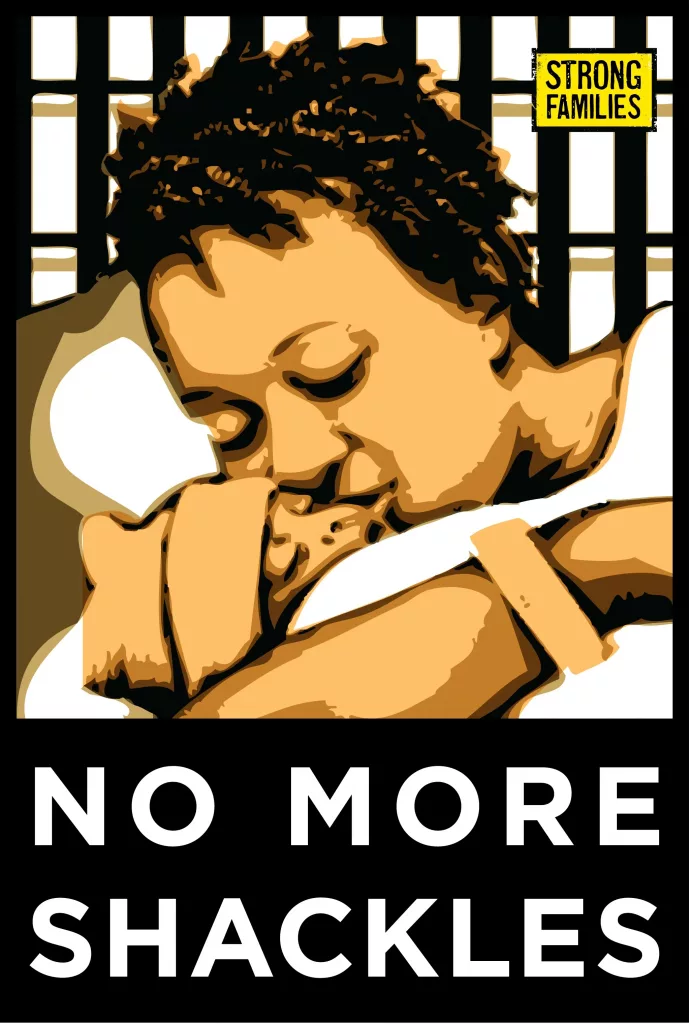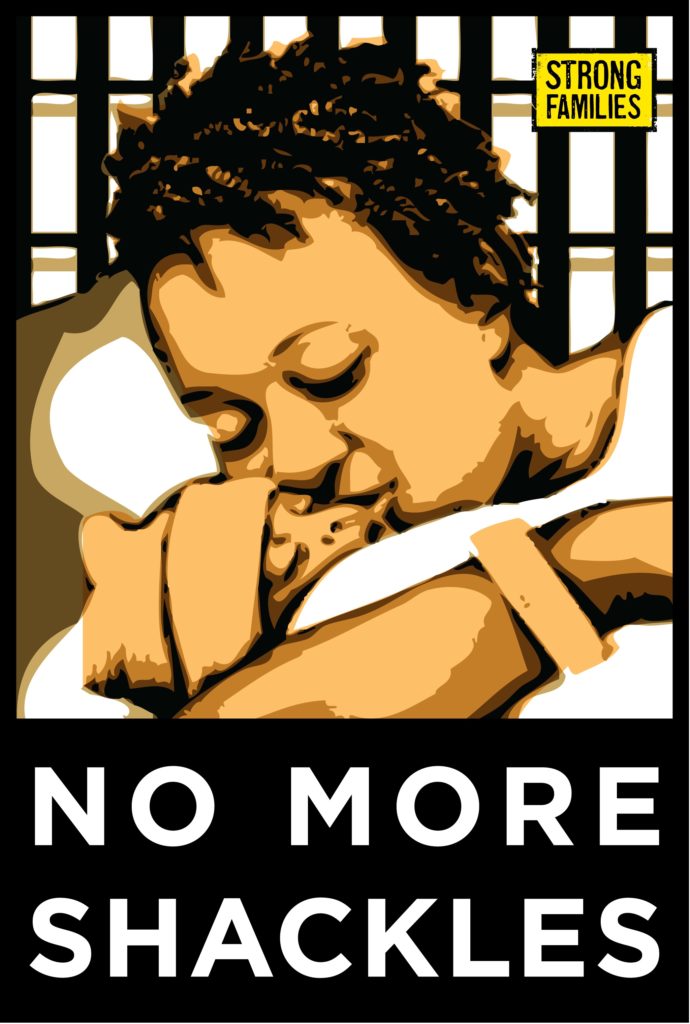Three years ago, March 26, 2018, the North Carolina Director of Prisons responded to SisterSong and other members of the Coalitions to End Shackling in North Carolina and officially ended the shackling of incarcerated women in childbirth. It was a momentous occasion and, in its way, a joyous and hopeful day. For the past three years, North Carolina legislators have tried to expand on that decision and now, finally, it seems they are ready to move forward. Yesterday, August 25, 2021, the Senate voted unanimously to approve a partial ban on pregnant women serving time in North Carolina prisons. The House had unanimously passed a similar bill in May, and now looks set to pass this bill, probably unanimously, and then pass it on to the Governor for signature. As Senator Natalie Murdock, Democrat from Durham, noted, “This is just transformational work. Folks have been in talks about this for years.”
While state prisons were already limited as to when a pregnant woman could be shackled and were banned altogether from shackling a woman in childbirth, the rules were both too vague and too often ignored or “left to the discretion” of staff. This bill codifies, in law, the rules. It limits shackling during the second and third trimesters, labor and delivery, for a six-week postpartum recovery period. If a staff member decides restraints are required, those restraints can only be wrist cuffs and that decision initiates a report to the warden, who then sends all the reports, on a determined regular basis, to the Department of Public Safety Leadership.
While the matter of staff compliance remains, as it always does, the transformational unanimity of the legislature suggests that, at least for the foreseeable future, there will be eyes on the prisons, at least in this matter. Additionally, by insisting on making explicit in law the appropriate treatment and care for women, the North Carolina legislature is demonstrating the conclusion recently reached by researchers of carceral pregnancy and childbirth: “Incarcerated pregnant people and their babies deserve better care that is codified in policy”.
Along with constraint limitations, the bill says newborn babies must remain with their mothers after delivery; mothers must be incarcerated within 250 miles of their babies until the children reach one year old; mothers must have two visits weekly with their children. Pregnant women must be allotted bottom bunks or beds no more than 3 feet off the floor. Guards can’t conduct body cavity searches on pregnant women.
At another time, the question of why it takes three years to arrive at a common sense, clear policy will be debated. For now, though, a celebration is in order. Yesterday’s Senate vote was a unanimous affirmation of the original House bill, House Bill 608, “An Act To Promote The Dignity Of Women Who Are Incarcerated.” Let us all celebrate the promotion of women’s dignity, everywhere, always. That would be just and transformational work.
(By Dan Moshenberg)
(Image Credit: Radical Doula)




